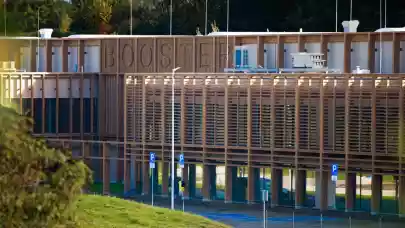
Warsaw, Krakow and Wrocław offer access to large pools of high-skilled professionals, modern office space and suitable infrastructure. They compete for shared services centres not only with other Polish cities but also with large urban areas worldwide, according to Cresa’s report on the Polish outsourcing market.
“R&D centres are expanding at a quick pace. This is also true for large financial institutions engaged in advanced global operations. That’s why multinationals choose to set up R&D centres and SSCs in top-class university towns to be able to offer first-rate services,” says Bolesław Kołodziejczyk, PhD, Head of Research & Advisory, Cresa Poland.
Bolesław Kołodziejczyk notes that the largest cities are seeing the fastest growth in salaries: “That’s why companies targeting those locations need to work out really well whether they will be able to bear higher costs and deliver a higher added value.”
However, big cities also have many other advantages, including a large supply of modern office space. Warsaw, Krakow and Wrocław will be the preferred choice also for corporates looking to enter Poland. “Managers who will be working here will often include expats (usually with families) who have already lived and worked in large cities. Upon relocation to Poland, they will look for a similar urban environment offering an appropriate quality of entertainment and educational options for their children,” says Bolesław Kołodziejczyk.
SSCs are expanding at a rapid pace in Wrocław, the capital city of Lower Silesia, which has recently attracted Smith & Nephew, Olympus, Schaeffler and Duco. Meanwhile, Krakow-based companies such as HSBC, Varroc Lighting Systems, Qualtrics, Kingfisher and Infinity Ward Poland expanded their operations.
Local governments also play an important role in attracting shared services centres. What can they actually do? “Listen to investors and take note of their needs. Create favourable conditions to support universities so that they respond to investor expectations. But first of all, local authorities should do their best to retain top graduates in Poland, particularly now. In the ongoing war for talent, the high quality of life in a city can boost the city’s business appeal very quickly,” says Bolesław Kołodziejczyk.
Wrocław’s local authorities, particularly the Wrocław Agglomeration Development Agency, are trying to bring business and education together. “Patronage classes are a successful example of such cooperation - they adjust courses to the needs of an employer who in return has to organize practical classes and apprenticeship and to provide equipment. Dedicated classes where a company promises to hire some graduates are a more advanced form of such collaboration. Both patronage and dedicated classes are available at sectoral and technical schools in Wrocław,” says Katarzyna Krawcewicz, Wrocław Agglomeration Development Agency.
Krakow is also taking up interesting initiatives that help bring business and education closer together. “It’s worth noting here the cooperation of about a dozen business centres in the city and Aspire, Krakow’s association of business services companies, with the Krakow University of Economics in running the specialisation The Future of Global Business Services,” says Katarzyna Wysocka, acting as Director of Entrepreneurship and Innovation in Krakow’s Town Hall.
According to ABSL’s forecast, employment in the business services sector will exceed 300,000 by 2020. How much will Krakow, Wrocław and Warsaw benefit from this growth? “Poland’s biggest cities have a huge potential, particularly now when large European economies are slowing down. In comparison with the West, Poland is seen as a safe haven and very competitive in many areas. That’s why big cities will continue to expand, but their growth momentum will depend on whether they are able to create a favourable business environment,” says Bolesław Kołodziejczyk.



